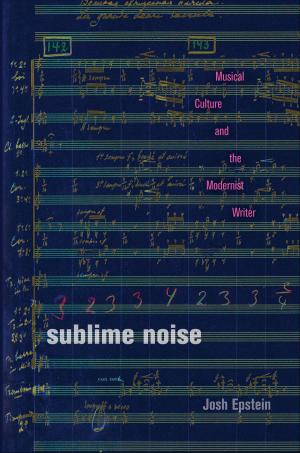When Stories Travel
Cross-Cultural Encounters between Fiction and Film
Nonfiction, Entertainment, Performing Arts, Film| Author: | Cristina Della Coletta | ISBN: | 9781421406626 |
| Publisher: | Johns Hopkins University Press | Publication: | May 1, 2012 |
| Imprint: | Language: | English |
| Author: | Cristina Della Coletta |
| ISBN: | 9781421406626 |
| Publisher: | Johns Hopkins University Press |
| Publication: | May 1, 2012 |
| Imprint: | |
| Language: | English |
Adapting fiction into film is, as author Cristina Della Coletta asserts, a transformative encounter that takes place not just across media but across different cultures. In this book, Della Coletta explores what it means when the translation of fiction into film involves writers, directors, and audiences who belong to national, historical, and cultural formations different from that of the adapted work.
In particular, Della Coletta examines narratives and films belonging to Italian, North American, French, and Argentine cultures. These include Luchino Visconti’s adaptation of James M. Cain’s The Postman Always Rings Twice, Federico Fellini’s version of Edgar Allan Poe’s story "Never Bet the Devil Your Head," Alain Corneau’s film based on Antonio Tabucchi’s Notturno indiano, and Bernardo Bertolucci’s take on Jorge Luis Borges’s "Tema del traidor y del héroe."
In her framework for analyzing these cross-cultural film adaptations, Della Coletta borrows from the philosophical hermeneutics of Hans-Georg Gadamer and calls for a "hermeneutics of estrangement," a practice of mediation and adaptation that defines cultures, nations, selfhoods, and their aesthetic achievements in terms of their transformative encounters.
Stories travel to unexpected and interesting places when adapted into film by people of diverse cultures. While the intended meaning of the author may not be perfectly reproduced, it still holds, Della Coletta argues, an equally valid and important intellectual claim upon its interpreters. With a firm grasp on the latest developments in adaptation theory, Della Coletta invites scholars of media studies, cultural history, comparative literature, and adaptation studies to deepen their understanding of this critical encounter between texts, writers, readers, and cultural movements.
Adapting fiction into film is, as author Cristina Della Coletta asserts, a transformative encounter that takes place not just across media but across different cultures. In this book, Della Coletta explores what it means when the translation of fiction into film involves writers, directors, and audiences who belong to national, historical, and cultural formations different from that of the adapted work.
In particular, Della Coletta examines narratives and films belonging to Italian, North American, French, and Argentine cultures. These include Luchino Visconti’s adaptation of James M. Cain’s The Postman Always Rings Twice, Federico Fellini’s version of Edgar Allan Poe’s story "Never Bet the Devil Your Head," Alain Corneau’s film based on Antonio Tabucchi’s Notturno indiano, and Bernardo Bertolucci’s take on Jorge Luis Borges’s "Tema del traidor y del héroe."
In her framework for analyzing these cross-cultural film adaptations, Della Coletta borrows from the philosophical hermeneutics of Hans-Georg Gadamer and calls for a "hermeneutics of estrangement," a practice of mediation and adaptation that defines cultures, nations, selfhoods, and their aesthetic achievements in terms of their transformative encounters.
Stories travel to unexpected and interesting places when adapted into film by people of diverse cultures. While the intended meaning of the author may not be perfectly reproduced, it still holds, Della Coletta argues, an equally valid and important intellectual claim upon its interpreters. With a firm grasp on the latest developments in adaptation theory, Della Coletta invites scholars of media studies, cultural history, comparative literature, and adaptation studies to deepen their understanding of this critical encounter between texts, writers, readers, and cultural movements.















